Speaking from Buenos Aires on his first foreign trip as head of state, Chilean President Gabriel Boric on Monday called for greater Latin American unity as he highlighted the “deep brotherhood" that unites his country with Argentina.
"Chile comes from Latin America and although for a long time we have been looking in other directions, towards the north or towards the Pacific, in relations that we are interested in maintaining and deepening, our base is Latin America,” declared the leftist leader, who vowed to “build community, cooperation and internationalism" in the region.
"Latin America has to recover a united voice, a voice of cooperation, a joint voice on the global stage," he stressed at a press conference with President Alberto Fernández.
Boric said that the choice of Argentina as the first trip was more than just a nod to Chilean tradition.
"We have a huge shared border, but also because of a personal trajectory, I feel a deep brotherhood with the Argentine people. I grew up in Patagonia. In Patagonia there are no borders," said the president, who was born in the city of Punta Arenas.
At the press conference, during which both leaders emphasised their common ties, Fernández argued that the Andes mountain range is "a border that unites us and does not divide us," while calling for "the realisation of the bioceanic corridor to which the north of Argentina aspires and which will unite Chile with Brazil."
Allies and accomplices
Both Fernández and Boric showered praise on each other, with the duo describing themselves at a press conference as "partners, allies and accomplices."
"In me you have a friend to help you in everything I can, an ally for Latin American unity and an accomplice to modernise whatever needs to be modernised with criteria of equality," Fernández, who is 27 years older than his Chilean counterpart, declared.
Both governments signed a series of cooperation agreements on gender and diversity issues, as well as plans to improve sites dedicated to remembering the victims of the two nations’ last dictatorships.
After meeting with the president, Boric was received by Lower House Speaker Sergio Massa and provisional Senate chief Claudia Abdala Ledesma at the National Congress.
He was due to visit the Palacio de Justicia afterwards for a meeting with Supreme Court justices, before attending a cultural show at the Centro Cultural Kirchner (CCK) and a dinner hosted by Fernández later in the evening.
On Tuesday, on his last day in Buenos Aires, Boric is due to inaugurate a business forum hosted by an Argentina-Chile trade committee and visit the Museo de Memoria at the ex-ESMA Navy Mechanics School, one of the most emblematic clandestine detention and torture centres of Argentina’s brutal 1976-1983 military dictatorship.
There the president will meet Bucarita Roa, the only Chilean member of Abuelas de Plaza de Mayo human rights group that is dedicated to the identification of the children of those who disappeared during the dictatorship.
In his remarks to the press, Boric called for respect for human rights "in an integral manner in all parts of the world, regardless of the political colour of the governments” after he was quizzed on his position on human rights violations in countries such as Venezuela, Cuba and Nicaragua.
“I am not going to make any distinction," he stressed.
Arrival – and shopping
Boric arrived in Buenos Aires on Sunday and was welcomed by Foreign Minister Santiago Cafiero at Ezeiza International Airport. He immediately made himself at home – he was later pictured at a bookshop in Palermo doing some shopping.
The Chilean leader also revealed that Fernández had gifted him Artaud, the legendary record by the late Luis Alberto Spinetta's band Pescado Rabioso.
Sticking to art, the state visit was also the moment chosen for the return of a series of seven black-and-white paintings by the Argentine painter Ernesto Deira called Identificaciones, with references to the death of the Argentine-Cuban guerrilla Ernesto Che Guevara and the Vietnam War, which had been in Chile since 1971.
Deira died in 1986 in Paris believing that his paintings had been destroyed as ordered by the dictator Augusto Pinochet after the 1973 coup d'état.
But in 2003 Argentine painter Felipe Noé, a friend of the artist, learned that the works were in storage at the Museo de Arte Contemporáneo (MAC) in Chile. After lengthy negotiations, they were returned to Argentina and arrived last Friday in Buenos Aires.
The seven paintings were given on loan to the Museo de Bellas Artes in Buenos Aires, where they will be exhibited from Thursday for three years before being returned to Deira's family.
Relaunch
Speaking before his trip, Boric declared the need to "strengthen bilateral relations with our brother country and strengthen them in commercial, political and cultural terms" in an exclusive interview with the Página 12 newspaper.
"I can tell you in advance that we are working on collaboration treaties on energy, gender, science and technology, and, of course, on an issue that interests me a lot and that goes beyond diplomatic agreements, and that is how we recover a leading voice from Latin America in international forums," said the Chilean leader.
The feeling in Buenos Aires is mutual. The change of government in Chile, following the departure of right-winger Sebastián Piñera and the arrival of the country’s new leftist leader, "means a relaunching of bilateral relations," a source in the Argentine Presidency told AFP on Monday, requesting anonymity.
"In addition to energy issues, which are important because of the war [in Ukraine], progress could be made on bilateral lithium exploitation, among other agreements," the source added.
– TIMES/AFP/NA









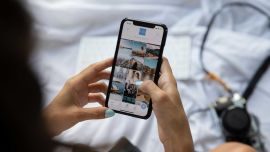






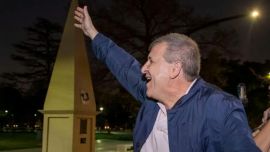
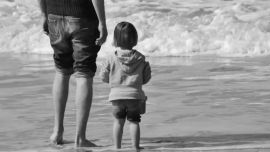
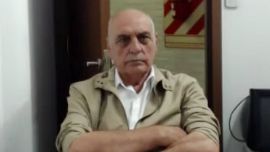
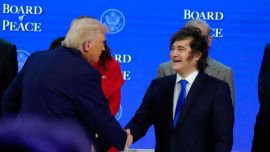
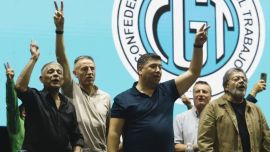
Comments